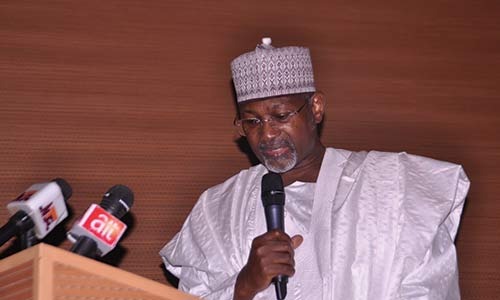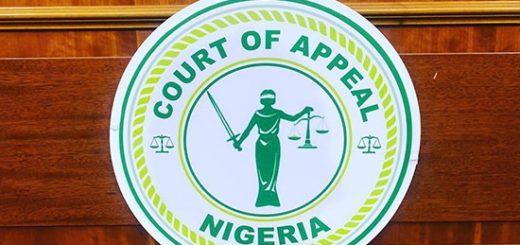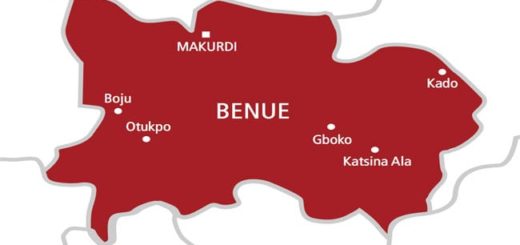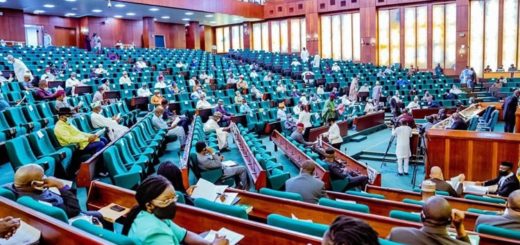“This Is Not Democracy — It’s Elected Autocracy!” – Jega
 Speaking at The Platform Nigeria, a Democracy Day event held on June 12, 2025, in Lagos and organized by The Covenant Nation Global, Jega painted a grim picture of a country where democratic structures exist in form but not in function. Despite nearly 30 years of uninterrupted civil rule, he said, Nigeria remains trapped in a cycle of weak institutions, unaccountable leadership, and public disillusionment.
Speaking at The Platform Nigeria, a Democracy Day event held on June 12, 2025, in Lagos and organized by The Covenant Nation Global, Jega painted a grim picture of a country where democratic structures exist in form but not in function. Despite nearly 30 years of uninterrupted civil rule, he said, Nigeria remains trapped in a cycle of weak institutions, unaccountable leadership, and public disillusionment.
“We have perfected the rituals of democracy—elections, campaigns, handovers—but failed to build its substance: institutions that work, leaders who serve, and a citizenry that trusts,” Jega said.
He lamented that the very people elected to protect democracy have become its greatest threat. A central problem, according to him, is the constitutional immunity granted to presidents and governors, which has become a shield for impunity and corruption rather than protection against frivolous litigation.
“Executives loot with impunity, manipulate institutions, and violate rights knowing they are untouchable for four or eight years. That is not democracy—it is elected autocracy,” he warned, calling for the outright removal of the immunity clause.
However, Jega emphasized that eliminating immunity is only the first step. He identified Nigeria’s compromised judiciary as another cornerstone of the democratic crisis. Judicial officers, he said, often operate under political pressure, suffer from underfunding, and are chosen through opaque, politicized processes.
“A democracy without an independent judiciary is like a car without brakes—it’s just a matter of time before it crashes,” he asserted.
To restore public confidence in the courts, Jega recommended urgent and comprehensive reforms: resolving all election petitions before swearing in winners, prioritizing merit in judicial appointments, eliminating contradictory rulings from different courts, and freeing the judiciary from executive control.
He also spotlighted the media as a vital—but endangered—pillar of democracy. Journalists in Nigeria, he noted, face harassment, restricted access to public information, and political co-optation.
“Without a free press, democratic oversight collapses,” he declared, urging full enforcement of the Freedom of Information Act and accountability for violators. At the same time, he called on media professionals to uphold ethics and resist disinformation.
Turning to INEC, the institution he once led, Jega acknowledged technological progress but insisted the commission remains overburdened and under political influence. He advocated for the unbundling of INEC to allow specialized bodies to handle electoral offenses and party regulation.
“Technology like biometric accreditation and electronic results transmission must be used transparently to eliminate rigging and restore voter trust,” he said.
He further criticized the unchecked power of the executive branch, describing it as bloated and unaccountable, with security votes routinely abused and appointments made on loyalty rather than competence.
To counter this, Jega recommended drastically reducing political appointments, enforcing budget transparency, and demanding higher ethical standards from public officials.
Ultimately, Jega argued that reforms alone are insufficient without active citizen engagement. He decried the apathy bred by years of corruption and exclusion, insisting that democracy must be reclaimed by the people.
“Democracy cannot be outsourced. Citizens must demand accountability, reject vote-buying and identity politics, and embrace their role as custodians of the republic,” he said.
He called for greater inclusion—enabling diaspora voting, early voting for essential workers, and legislative quotas for women, youth, and persons with disabilities—stating that a democracy that excludes its most dynamic demographics is fundamentally flawed.
In conclusion, Professor Jega declared that Nigeria needs more than periodic elections; it needs a full democratic reset.
“We must abandon the illusion that civil rule equals democratic governance. If we continue on the current path, we risk democratic collapse. But if we act with urgency, clarity, and courage, this republic can still be saved,” he said.
“Let the reforms begin. Let the people rise. Let democracy, finally, be real.”













